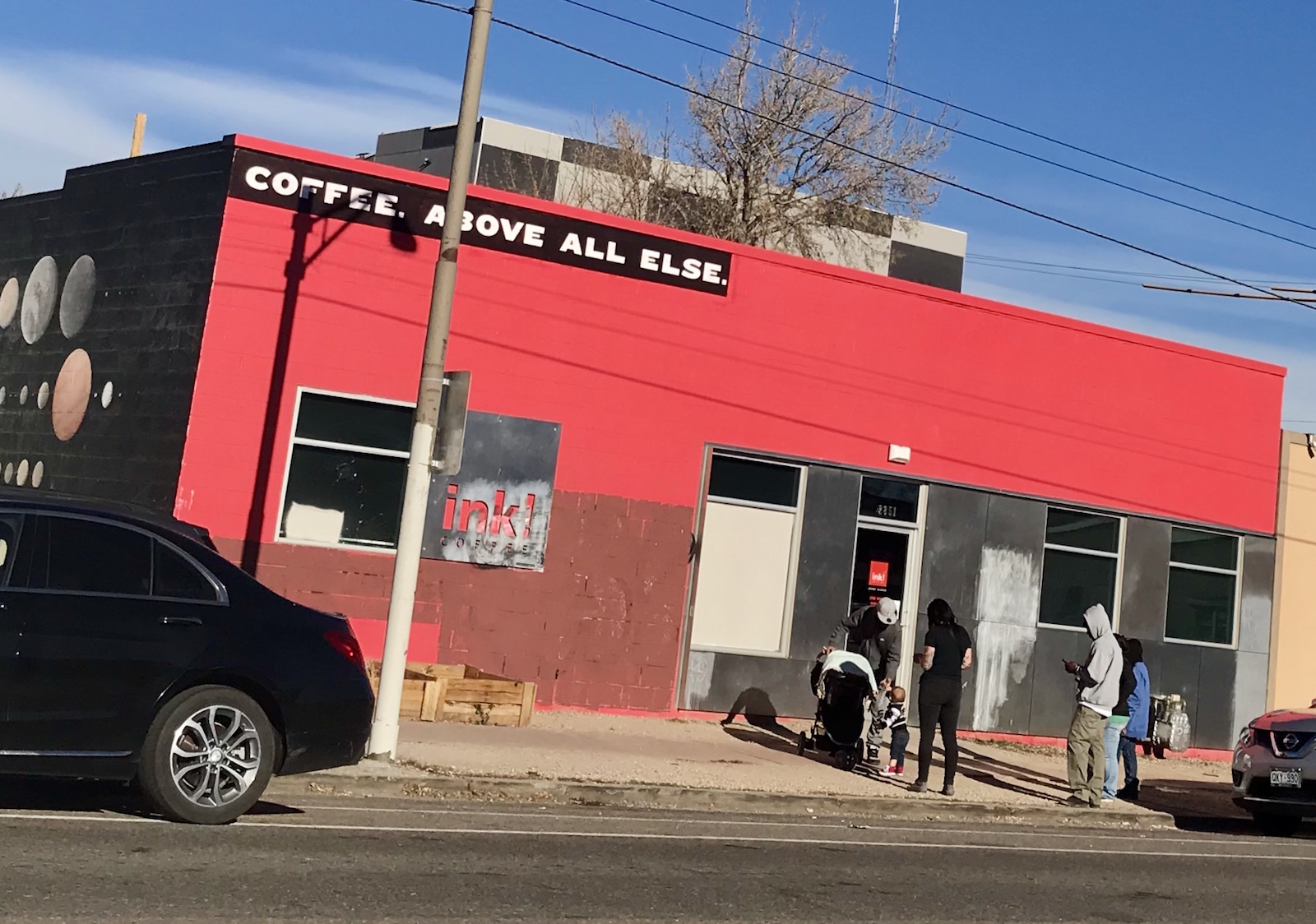The Local newsletter is your free, daily guide to life in Colorado. For locals, by locals.
By 9:30 a.m. this morning, most of the hubbub at Ink Coffee on Larimer Street, in the area now known as RiNo, had abated. Just a small group of protestors remained from the morning’s NAACP-organized community protest (paired with the social media hashtag #wedontdrinkink), the second such rally outside the coffee shop since controversy sparked last week.
It all began when a photograph of the Aspen-born coffee shop’s now-infamous sidewalk sign went viral. It read “Happily gentrifying the neighborhood since 2014” on one side and “Nothing says gentrification like being able to order a cortado” on the other. Ink dispensed a series of apologies, but anger and resentment mounted. The shop soon found its windows smashed and multiple works of graffiti marking its storefront. A large protest on Saturday drew a crowd of activists that swelled into the street.

As this section of the Five Points neighborhood has transformed into trendy “RiNo” over the past few years, housing prices have soared, and former residents, many of whom are black and Latino, have been displaced. Cortado-slinging coffee shops like Ink, which cater to the influx of wealthy (and often, white) residents, are seen by many as markers of that gentrification process.
yo @inkcoffee we are not cool with this sign on 29th and Larimer. Bad decision. Bad design. BAD. W.T.F. pic.twitter.com/81UkXfM9kh
— La Patrona (@theperfectRu) November 22, 2017
For Inocencio “Ox” Mendoza, a protestor whose grandmother once owned a house on that very block, the issue is personal. “When I saw the sign, I was furious. We all got pushed out of the neighborhood,” he said. “To take the word gentrification and turn it into a joke? You don’t do that shit blatantly and not expect a backlash.”
Shanna Bernstein, also a Denver native, echoed Mendoza’s comments. “It’s important that we educate people that improvement and gentrification are different. Just because something is shinier and whiter doesn’t mean it’s better. This neighborhood has a rich history. It’s always been a beautiful place.”
While much of the social media controversy has focused on the sign itself, local activist Phillip Hunt stressed that the sign is not the reason he continues to protest. “It’s about people getting pushed out of the community. I don’t want it to get caught up in politics,” he said. “It was important to be here today to show that community activism is not going to stop.” Hunt is a member of a new, yet-unnamed community coalition formed in response to the Ink controversy. Its mission? To fight gentrification in Denver through political action.
As the sun continued to climb into the Denver sky, pedestrians passed by Ink looking for coffee. The small group of demonstrators still congregating out front suggested they cross the street to Crema Coffee House (which supplied the activists with free coffee) or go to nearby Coffee at the Point instead. As of today, the Five Points Ink outpost remains closed.








